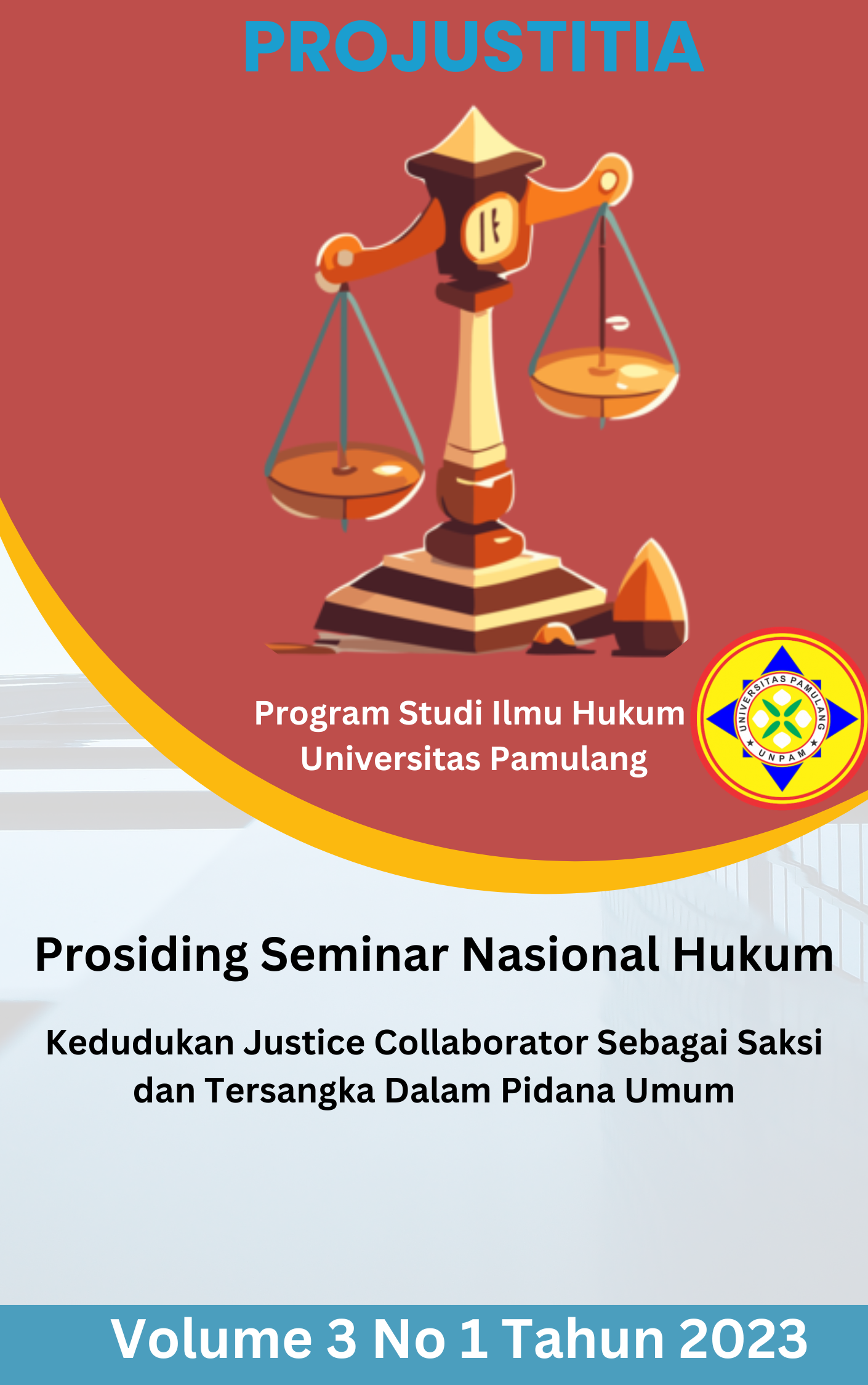ANALISIS YURIDIS PUTUSAN ULTRA PETITA TINDAK PIDANA KORUPSI (AnalisisPutusanNomor 17/Pid.Sus/TPK/2014/PN.JKT.PST)
Abstract
Ultra petita, that is the term, where the judge makes a decision on a case that is not prosecuted or passes more than what is requested, in other words ultra petita is a decision made by a judge on a case that is not prosecuted or decides more than what is requested. In the context of Criminal Procedure Law, the Decision was issued, because the Public Prosecutor's indictment was imperfect and as a form of progressive legal development in which Judges are not only mouthpieces of law but are mouthpieces of justice that are able to provide quality decisions by finding the right source of law. This study aims to identify and analyze the application of the ultra petita principle in decisions on corruption cases and to analyze whether the application of ultra petita decisions is in accordance with the principles in criminal law. This research is a normative research with a case approach, a statute approach, a conceptual approach. The material obtained was in the form of primary legal material and secondary legal material which were analyzed systematically, factually and accurately and then presented descriptively, namely explaining, describing and describing in accordance with the problems that are closely related to this research. The results of the study show that the legal position of ultra petita decisions in corruption cases, especially related to the Susi Tur Andayani case, can be justified because judges have the authority in Law Number 48 of 2009 concerning Judicial Power to explore values that live in society. The aspects of justice, benefit and legal certainty in the application of the ultra petita decision in the Susi Tur Andayani corruption case do not undermine justice in law. The ultra petita decision in the Susi Tur Andayani case focused more on justice and expediency.
Keywords:Ultra Petita Decision;Corruption.


